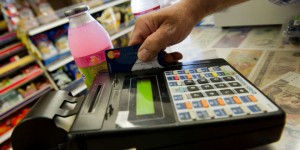 Consumer prices in the U.S. unexpectedly fell during August as the prices of gasoline started to decline ago and a strong U.S. dollar curbed an increase in other goods, pointing to tame inflation that will complicate the decision by the Federal Reserve on hiking interest rates.
Consumer prices in the U.S. unexpectedly fell during August as the prices of gasoline started to decline ago and a strong U.S. dollar curbed an increase in other goods, pointing to tame inflation that will complicate the decision by the Federal Reserve on hiking interest rates.
The U.S. Labor Department announced on Wednesday that the Consumer Price Index had dropped by 0.1% in August, its first drop since January after it edged up in July by 0.1%.
In 12 months through August, the CPI was up 0.2% after a gain that was similar for July.
The U.S. policy setting committee at the central bank was due to begin its meeting on Wednesday afternoon. While there is strong data on housing, employment and consumer spending that support a rate hike, the case for higher costs for borrowing funds has been undermined by the recent turmoil in the world’s financial markets.
Gains by the dollar were pared against the yen and euro after the release of the data. Futures for the stock indexes in the U.S. were little affected by the data.
Financial markets in the U.S. were pricing a probability of 29% of an interest rate hike on Thursday.
The tightening jobs market, marked by all time high job openings and an unemployment rate of 5.1%, have thus far not helped to spur on a faster growth in wages.
Sluggish gains in wages and a strong U.S. dollar contributed to keeping the rate of inflation below the 2% target of the Fed.
The CPI core prices, which strip out energy and food costs, moved up 0.1% in August after a rise of a similar amount during July.
Those muted gains reflect the impact the dollar has on the cost of goods that are imported.
